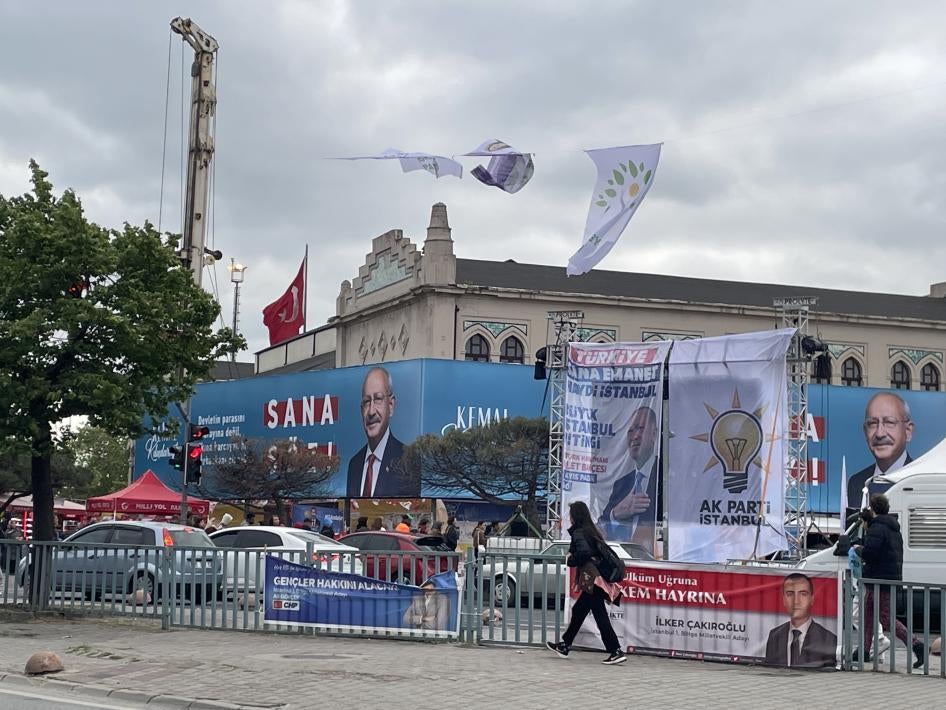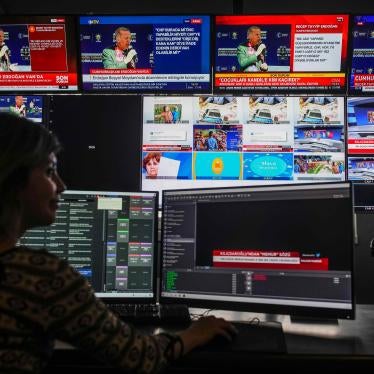As voters in Turkey prepare to head to the polls in May 14’s pivotal parliamentary and presidential elections, social media is playing a central role in shaping the debate.
Turkey’s mainstream media, where most people get their news, is overwhelmingly aligned with the government. A recent study found that over the past month state broadcaster TRT devoted 32 hours of coverage to President Recep Tayyip Erdoğan’s speeches but just 32 minutes to those of Kemal Kılıçdaroğlu, his main rival for the presidency. Opposition parties have therefore taken to social media, depending on independent news websites and live streaming platforms to reach Turkey’s public.
But online platforms, such as Twitter, Facebook, YouTube, and others are also where vicious aspects of a highly divisive political campaign led by the government have played out. Over the past week, a Twitter account impersonating various Turkish people began circulating threats of a fake “sex tape” aimed at discrediting another presidential candidate, Muharrem İnce, which contributed to his withdrawal from the race. After being exposed by an independent researcher, the account was temporarily deactivated, apparently by whoever operated it.
Social media companies have been inconsistent and nontransparent in their approach to content moderation and account authenticity, which in the Turkish case contributes to muddying an already fraught political scene. Platforms should ensure they are devoting adequate resources to meet their human rights responsibilities, especially during elections.
Turkey’s government has amassed an arsenal of powers to control the internet and impose restrictions such as arbitrarily removing content critical of Erdoğan or the government party. As Human Rights Watch discussed in a May 10 briefing issued jointly with ARTICLE 19, the government has historically wielded these powers to stifle opposing voices and even extended these powers last year, increasing opportunities to throttle platforms that don’t comply with take-down demands.
As election night draws near it is imperative that social media platforms and the wider internet remain accessible so the public can follow the work of independent election monitors and reporting around the vote count. Given the sorry state of Turkey’s mainstream media, the integrity of Turkey’s election depends upon it.










